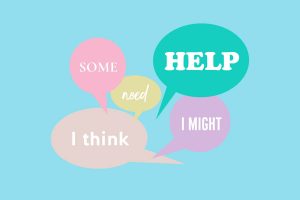How to deal with anger: 5 ways to tame the rage within

Over the course of 19 years working as an anger management consultant, I have witnessed how so many of us suppress or completely deny our feelings of anger. My clients have allowed me to gain a deeper insight into this mechanism of subversion and, as a fairly introverted culture, I understand how people can really get stuck.
The English are champions at minimising feelings and the nation’s self-deprecating humour is a source of national pride. If you can’t take it, well, you’re being overly sensitive and that’s a bit of a bother really. Boys, in particular, learn this from a young age. Then there’s our stoicism – ‘Keep Calm And Carry On’. While this might have served us as a nation in crisis during World War II, on an individual level it can lead to discounting and minimising not only our own feelings but everyone else’s, too! It doesn’t serve anyone to suck distress straight back in and numb feelings. Internalising everything means we either get physically sick, or act out in a fit of rage once we can no longer contain it.
When we repress anger, it often leads to depression. We also deny other associated feelings such as fear, shame, hurt and joy. And so, we seek refuge, in work, sex, food, shopping, gambling, alcohol or drugs.
In her TED talk, The Power of Vulnerability, US author Brené Brown flawlessly explains how ‘you cannot repress one feeling without suppressing them all’. And anger is by far the hardest one to crush. It will find a way out – whether through full-blown aggression, or the seething ‘just below- the-surface’ constant undermining, sarcastic or belittling voice that dampens any environment and often hides behind a sophisticated humour.
THE TRUE COST
Stress and all its manifestations costs the UK about £38billion a year. In 1987 it was less than half that – £17billion. While technology has made our lives easier, and in many ways more efficient, our brains have not kept up.
In fact, there has been an increase in emotional drama, personal and professional crises, mental health issues, addictions, depression, anger, a new wave of cyber crime and violence, and a whole range of stress-related illnesses from our immune systems being so severely compromised. We need to ask ourselves in a world full of answers, why is stress still getting the better of us?
My suggestion is that it’s our inability to deal with the core stressors in our lives. Stress happens to be a low self-esteem issue and it fuels anger.
The reasons why we don’t handle stress very well are…
- We don’t make ourselves a priority in our own lives i.e. ‘everyone else’s needs are more important than mine’.
- We put ourselves under unnecessary pressure. Some pressure is a great motivating factor to get things done, but too much pressure has a bad impact on us both emotionally and physically.
- We struggle to trust the way our lives unfold. Human beings are very resilient and can handle extreme situations. Think about people living in war zones; somehow they find ways to survive.
- We continuously seek approval from others to boost our self-esteem. This is effective for about 20 minutes before we need to find someone else to reassure us we’re OK.
- We try to control everything and everyone at all times. It leads to total exhaustion and is not very effective.
Practise the sentences below using emotive words that are not aggressive…
‘I feel _____ with you because _____.’
‘I recognise that sometimes I can behave _____.’
Avoid starting conversations with the following accusatory phrases, as they always end up in a slug fest:
- YOU NEVER…
- YOU ALWAYS…
- WHY DON’T…
- YOU SHOULD…
- AND BY THE WAY…
- ONE MORE THING…
Find Your Balance
If your life is being ruled by any of the core stressors mentioned, it’s time to:
- Prioritise yourself and your needs.
- Reduce the amount of pressure you put yourself under.
- Learn to trust yourself more and undermine yourself less.
- Stop seeking approval from others or believing you constantly have to prove yourself.
- Relinquish control over everything.
BETTER COMMUNICATION
Generally, we struggle to admit our feelings because we don’t want to be seen as weak. But when two individuals take up a defensive stance, all hell can break loose. They become stuck in what I call ‘self-righteous anger’ and both sides end up losing. There is no win-win in a war of words. Instead, it’s far healthier to be able to express your anger in a respectful and unprovocative way. And when you start to reveal your own vulnerability, it’s more likely the other person will show theirs, too.
Very simply, if you have an issue with someone, try to start the conversation with what you feel (as opposed to a judgement or criticism), then ask for what you need and finish with a recognition of the behaviour. By expressing your feelings before you get into shaming and blaming, you will get a more effective result.
AGREE TO DISAGREE
Sometimes a therapist will suggest to a couple that reaching a compromise is the most effective way to achieve a happy medium. But how often in family systems do you hear: ‘You never compromise and I always do’? One person is always left feeling they have relented in order to keep the peace and that just builds even more resentment. I prefer to go for the win-win. This may take more time, months or even years, but at least it’s about reaching a place of equality.
One of the most effective ways to nip a potential argument in the bud is to agree to disagree. We live in a world where everyone wants to be right. Our egos can’t accept it any other way and as a result strive for perfectionism. This leaves us living in a world of black and white, right and wrong, good and bad, my fault or your fault. This is known as oppositional thinking – it’s one way or the other, and nothing in between. As a culture, we need to find a way of stepping out of this type of thinking and simply agree to disagree. Even if the other person tries to suck you in with their judgements, you don’t have to feel the need to prove yourself or convince them you’re right. We all have the choice to argue or not… Balance is born out of letting go of our attachment to how things ‘should be’. See Mindfulness & the Art of Managing Anger by Mike Fisher (£7.99, Ivy Press). www.angermanage.co.uk











